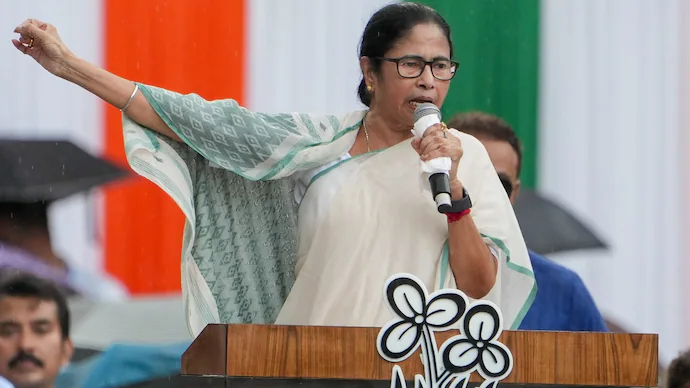Mamata Banerjee’s ‘don’t teach me’ response to Centre over Bangladesh refugees row
Bangladesh had objected to Mamata Banerjee’s remark on providing shelter to those fleeing violence-hit Bangladesh. MEA spokesperson Randhir Jaiswal had pointed out that matters involving foreign relations are the prerogative of the central government.

In a recent diplomatic episode, Mamata Banerjee, the Chief Minister of West Bengal, made headlines with her comments about providing shelter to individuals fleeing violence in Bangladesh. This statement sparked a diplomatic row, leading to objections from the Bangladeshi government. The situation underscores the complexities of international relations and the intricacies of managing foreign policy within a federal framework.
Mamata Banerjee, a prominent Indian politician and leader of the Trinamool Congress (TMC), made the remarks in the context of a broader discussion on humanitarian issues and regional stability. Her comments suggested that West Bengal, a state in eastern India sharing a long border with Bangladesh, could offer refuge to those displaced by conflict in the neighboring country. While her intention appeared to be driven by humanitarian concern, such statements can have significant diplomatic implications.
Bangladesh, a neighboring country with whom India shares extensive cultural, economic, and political ties, expressed concerns over Banerjee’s remarks. The Bangladeshi government likely viewed the comments as potentially complicating bilateral relations and undermining its sovereignty. Statements on sensitive issues such as cross-border movement and refugee crises can affect national pride and international diplomacy, making it crucial for such matters to be handled with caution and coordination.
In response to the diplomatic stir, Randhir Jaiswal, the spokesperson for India’s Ministry of External Affairs (MEA), stepped in to address the situation. Jaiswal emphasized that matters involving foreign relations fall under the jurisdiction of the central government of India, not state governments. This clarification was important to assert that India’s foreign policy is formulated and executed at the national level, and state leaders’ comments on international issues do not reflect the official stance of the Indian government.




